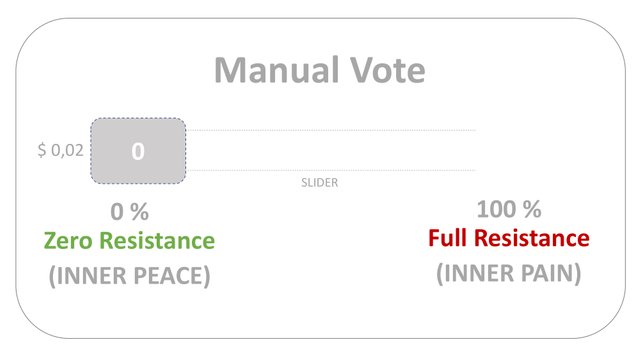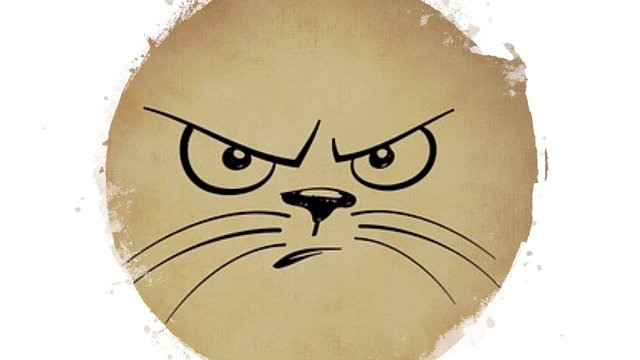無爲


In every system there are actors who express both the worst and the best intentions and actions.
Since the most benevolent intentions are never as loud and provocative as those that send out egocentrism and evil, the best in a system is often overlooked in favor of the worst.

The one who enters a system and is already richly endowed with such "experiences of reality" will continue to assume that the actors will not be very much different from those already perceived. The same is expected of those who enter a space with utopian or naïve ideas. Both are of course "right".
On what scale of values can this system regulate itself in such a way that it neither wants to force the best nor overlooks the fact that an unconditional will already stretches out a hand in the direction of dark power?
It can therefore only behave in such a way that it offers voluntary recognition and participation. It invites. It does not want to have to convince, it wants to create the living experience.
It's what is being called skillful spontaneity. Or "wu-wei" 無爲
A system that is only able to reproduce the reactions of the system actors through "I like" and "I don't like" misses a great opportunity. The space in between. The wu-wei. Not wanting and needing too much and thereby getting satisfaction.
No, not the space between the one and the one hundred percent of your voting-slider.
I do not mean literally between these two, but something other than that. A different use of terms and changing habits in thinking/perceiving.
I would like to break my habit of going through years and years of practice according to PREFERENCE and DISAPPROVAL. Are you with me?
I invite you to change the language that is adapted to it. The "I like" becomes "little resistance", which is something different! It is not an equivalent, it is distinctive from it. The "I like" commits itself exactly to this thing it likes (wants, needs, wishes for, craves for). The "I am not in conflict/resistance to it" however is substantially more relaxed. It leaves enough room for other things. It doesn't stick to the urgently liked.
The space between the smallest and greatest resistance is allocated according to feeling, but it is probable that the recipient can receive the whole thing much more positively now.
Why? What makes it different?
If you know that you are not dealing with a person which evaluates the quality of YOUR work, but decides over HIS/HER resistance of your work/expression: What does it change in your state of receiving that response?
You'd probably feel less of an insult when the slider of the one manually voting for you works it's way up to a certain expressed resistance. Compare it to now. What happens with the current manual voting habit?
This is what you and me are used to:
😒 1 % = almost no like , 😊 100 % = I like it a lot
This is what you and me could become used to:
✌ 0 % = least resistance, 😩 100 % = greatest resistance
No matter where you are, on which social media channel you currently have your presence, it's like this everywhere: thumbs up, thumbs down, I like, I don't like. How agonizing it can be to find out that when we stay with the finger on the voting button, that we should evaluate the content of a thing according to this very principle.
What if the 0 would represent your state of least resistance with your given upvote and the 100 your greatest resistance? If it would be the other way around compared to now? Like so:

Between a zero resistance and a maximum resistance is a space of averages. It's given by feeling.
What if the one you give with zero or little resistance your manual vote to, does now automatically receive your reassurance that you evaluated his content after YOUR state of being and not HIS/HER expression, say: effort of content?
And vice versa?Moreover, what would it change for you if you saw that a voter perceived your post through great inner resistance? Then how would you deal with it? Would it be different? Would you need an explanation under all circumstances, would it be good enough for you to know that the inner resistance of another one really does not differ from your own, whenever this is the case?
Do you think this slider would question your habit of always deciding "I like that" and "I don't like that"?
What if you could get used to letting your inner voice prompt you every time you make your decision? How small or how great is your resistance? Not: Do I like that? Don't I like that?
Again the comparison: At the moment we are ... let's admit it ... on the level of something like: Yaaaaahhh!!! I like that!
Or: Blähhhhh!!! I don't like that!! Now, isn't that some kind of ego-shooting?
I toyed a little with the concept of "inner resistance".
For some time now I have been dealing with the method of Systemic Consensus and it fascinates me and raises questions. It tries to break my mental habits and give me an idea of something else.
It's like with your keys. Do you always put it in the same place? How do you feel about having to find a new place for them? Or the other way around: You always misplace your keys, how about you have a place for them that causes you less trouble?
The systemic integrative view tries to moderately embed the parts of rejection and enthusiasm into our existence.
It doesn't want to negate the fighting fist, it doesn't want to keep the feeling of pleasure in a spasmodic way. Both want to be integrated, because only where it is can there be a feeling of coherence.
Yesterday I saw an episode of "Starwars - the clone wars". In it Master Yoda went on a journey of inner contemplation and was invited by the beings between life and death to meet his inner parts. I had hoped that the scriptwriters would be able to tell the story in such a way that Yoda's vengeful side would finally be integrated back into him, rather than the black Yoda creature - symbolized by a shadowy caricature - being destroyed by him.
It is impossible to destroy the dark power, just as it is impossible to destroy the light power. Both sides are always a part of each of us and deserve to be accepted.
How would you like to have your voting-slider altered in this way? Would you start using it how it's supposed to serve?
Last question: Whenever you search for something on the Internet through the finding machines and you don't find a lot about it. What does that tell you? That you are up to something? At least, I do think that. "Systemic Consensus"? You can barely find anything on the Net.
Recent engagements with people on Steemit inspired me to write this blog, I guess it was with a high participation of my inner resistances :)
Play with the questions if you like.
For a more serious reference you'll find here a collection of articles I wrote under the view of systems theory & systemic thinking.
emoji-pictures provided by pixabay
slider graph done by me.
A small (?) task in the end: Try to avoid the following formulations in your comments:
I like it, ...
I don't like it, ...
I love it, ...
I disagree ...
I agree ...
Instead try to find an alternative formulation. It's hard as hell! Do it for a day, a week.
Lass doch mal den englischen Kram und komm zurück ins Mutterschiff. Da wirst Du vielleicht nicht häufiger gelesen, aber sicher als Bereicherung honoriert.
Downvoting a post can decrease pending rewards and make it less visible. Common reasons:
Submit
Downvoting a post can decrease pending rewards and make it less visible. Common reasons:
Submit
My dear cat,
It's seductive beyond all measure and it touches my heart that you are so prescribing me as someone for all. Rarely do I get such an encouragement, I think, because I generally give the impression that I don't need it. It can be very ... , sometimes. I contradict you a little that Steemit makes the world smaller. It can make it much richer and more colorful if you look for it. Just look, we probably wouldn't have come into contact with each other and I don't know why, I feel connected to you ... don't know, it was the music ... or your confusing text flows ... You always appear very surprisingly and then again submerge. I like that. It has something unpredictable.
But maybe ... maybe ... my ego feels carried by your charm and wants to take it here and there as a gift. I feel silly to deeply touched when I read what you have to say in some places.
The significance of something often reveals itself later on.
For what where you late?
Downvoting a post can decrease pending rewards and make it less visible. Common reasons:
Submit
Ich hab schon fast verlernt, auf Deutsch zu schreiben! Echt! Ich gehe ganz automatisch auf Deepl und fang an zu tippen. Dann schau ich mir mein komisches Deutsch an und dann das Englische. Ich mags einfach lieber! Nichts gegen mein Mutterschiff, damit du das nicht falsch verstehst. Ich treib mich aber furchtbar gern im Ausland herum (und da ich wegen der Umwelt nicht mehr fliegen tu, hole ich mir die Ferne zu mir nach Hause. Von überall her kann man Leute kennen lernen und ich hatte schon richtig lustige und interessante Begegnungen mit Deutschen oder Österreichern, wo wir erst nach einigem Hin und Her merkten, dass wir Landsmänner sind!
Weißt du noch? Wie ich hier ganz empört aufhören wollte zu bloggen? ähem ... Und du warst dann auch noch da und wir unterhielten uns. Kommt mir vor, als würde ich dich schon ewig "kennen".
Ich erinnere mich noch gut an deine Serie vom Kindergeburtstag im Garten.
Downvoting a post can decrease pending rewards and make it less visible. Common reasons:
Submit
Congratulations @erh.germany! You received a personal award!
You can view your badges on your Steem Board and compare to others on the Steem Ranking
Vote for @Steemitboard as a witness to get one more award and increased upvotes!
Downvoting a post can decrease pending rewards and make it less visible. Common reasons:
Submit
I love the Taoist wu-wei reference.
Downvoting a post can decrease pending rewards and make it less visible. Common reasons:
Submit